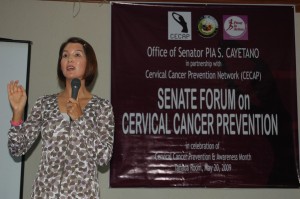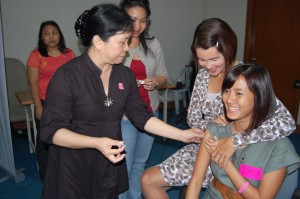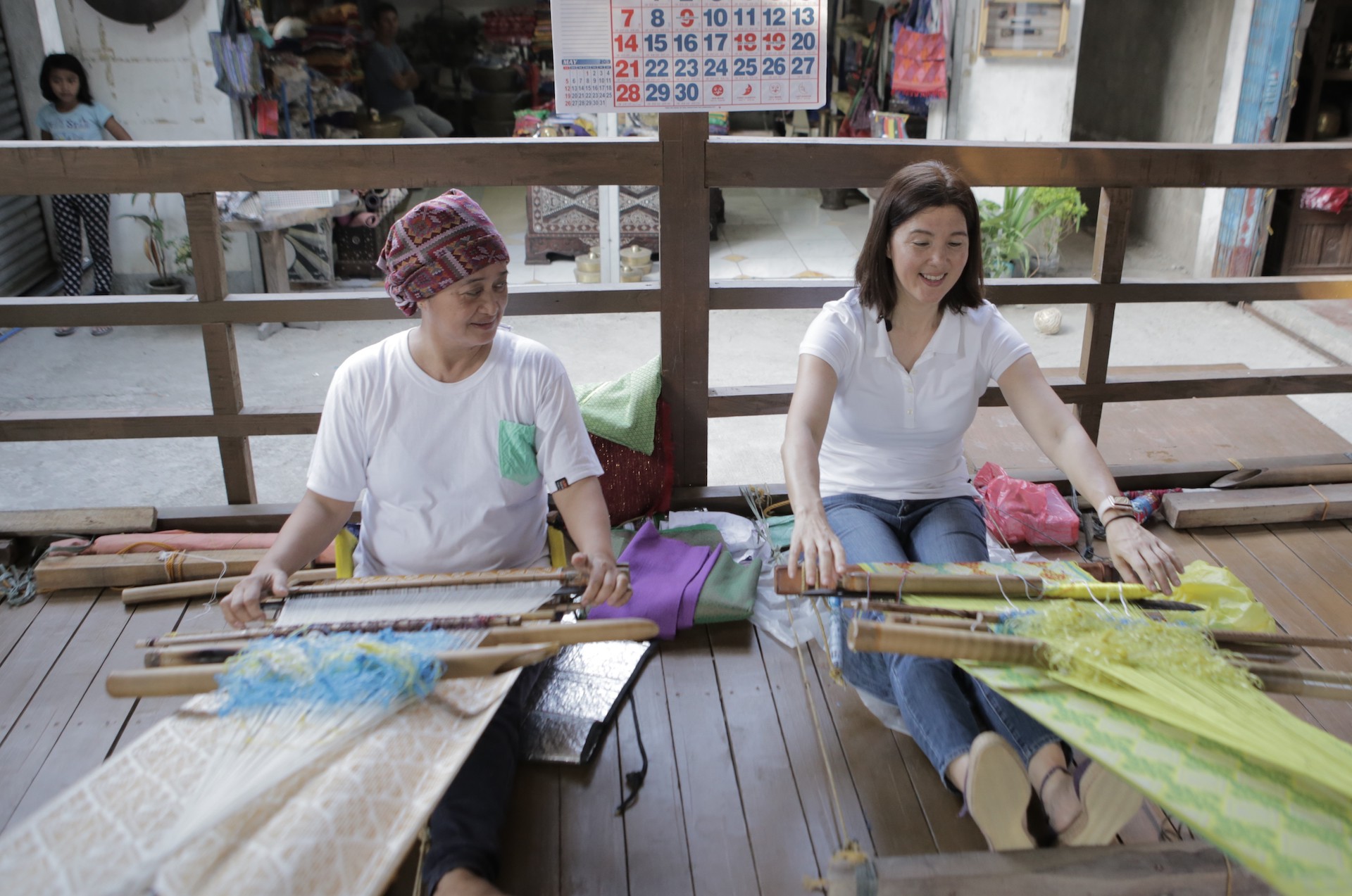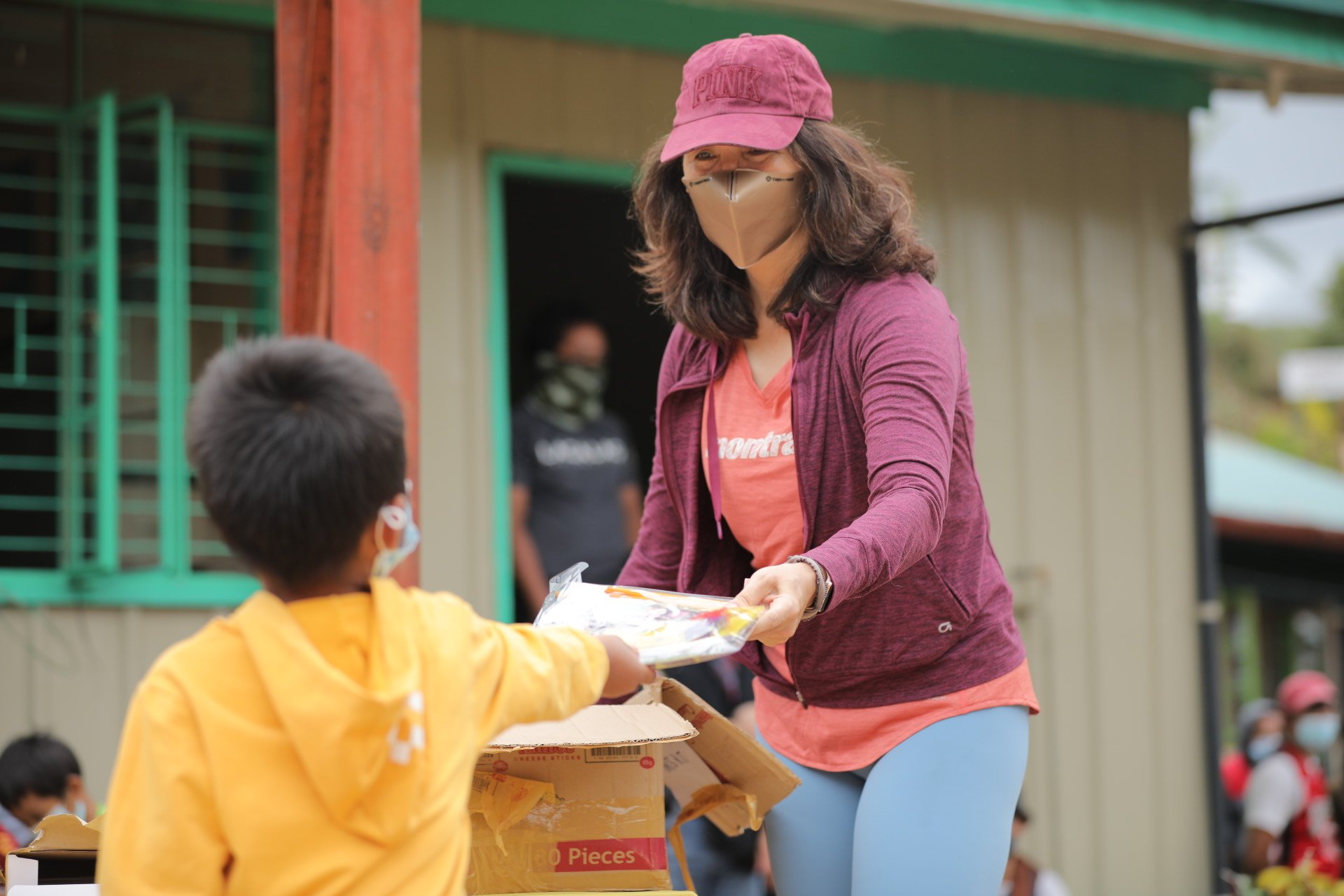Yesterday, I organized a forum on Cervical Cancer Prevention in the Senate together with Cervical Cancer Prevention Network (CECAP). The objective was to raise awareness about the causes of cervical cancer and how to prevent it.

We invited various NGOs and women representing different sectors of society to participate in the forum. Our speakers gave very interesting and informative talks.

After that, the anti-HPV vaccination provided by Glaxo-Smith Kline were given to some of the women who symbolically represented Filipina women from all walks of life.We had a public school teacher, a police woman, a government employee, a barangay official, a health worker, an OFW, student, a mom, and our special guest, Bianca Gonzales, who was able to keep smiling while she was being vaccinated.

We were all given pink bands with 3 cute icons, meant to be a reminder of the 3 shots that need to be completed.

After the Forum, I delivered a privilege speech. I mentioned that a year ago I conducted a hearing on cervical cancer and expressed hope that my colleagues would support the bill on this.Unlike other cancers, cervical cancer is preventable. According to CECAP, 99% of cases it is caused by the HPV virus that is transmitted sexually. With increased awareness, we could prevent the death of women from cervical cancers.

As part of my commitment to women’s health and prevention of cervical cancer, my public funds were used to purchase equipment for PGH, including a colposcope which is a complete diagnostic and therapeutic facility pr premalignant diseases of the cervix.
Facts about Cervical Cancer (Data from DOH, CECAP)
Next to breast cancer, cervical cancer is the 2nd most common cancer killer among Filipina women. For every 3 Filipinas diagnosed, 1 will die within the year.
This high death rate is mainly due to late detection and lack of awareness.
What causes cervical cancer?
Cervical cancer is caused by the Human Papillomavirus (HPV) which is transmitted sexually. It may not develop into cancer for as long as 10-20 years from infection. About 80% of women will be infected with HPV in their lifetime. It is the most common sexually transmitted viral infection.
However a strong immunity can help prevent cervical cancer from developing. This would include a healthy lifestyle which means exercise, good nutrition and a lifetime of mutual monogamy with one’s partner. Those at high risk are: those who smoke, those who started sexual activity at an nearly age, those with multiple sexual partners and previous sexually transmitted infections.
Aside from a healthy lifestyle, a woman should also have regular pap smear tests every 3 years from the time she becomes sexually active but not later than 21 years. There is also vaccination that is now available to women.
A study was recently conducted by UP-DOH showing that a visual examination of the cervix aided by acetic acid wash is a cost-effective screening method for cervical cancer.
This is an option that can be made available to women who cannot afford to get a pap-smear, and is one of the projects that I am embarking on at the barangay level with CECAP.






